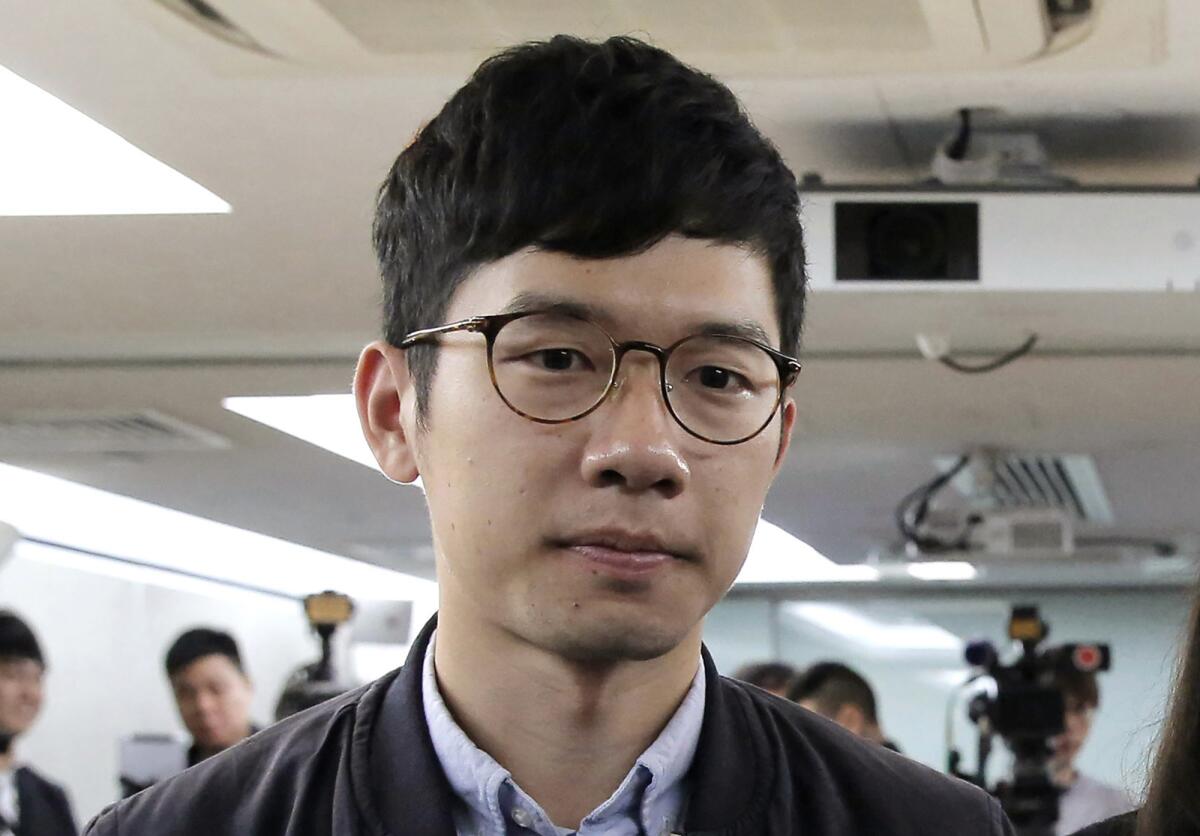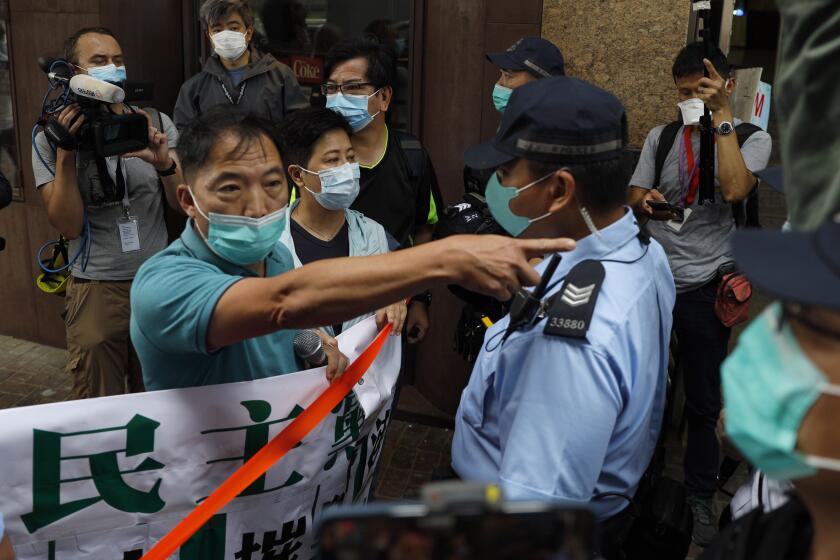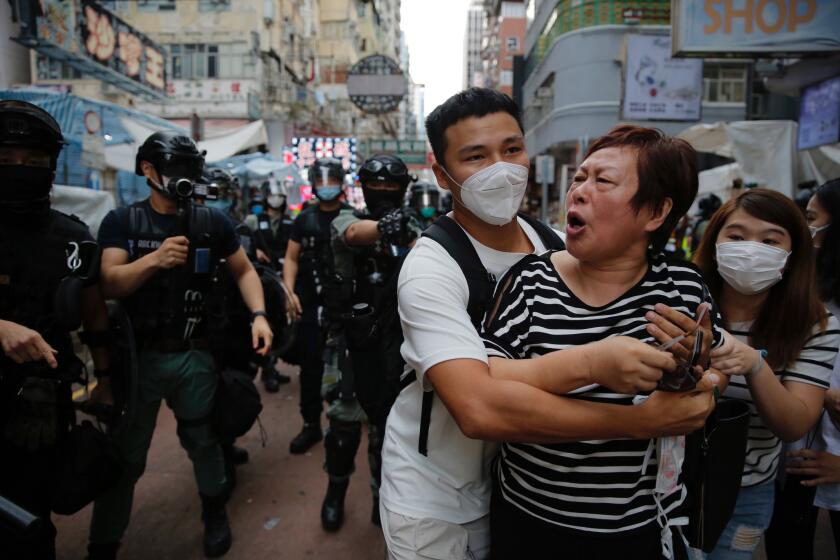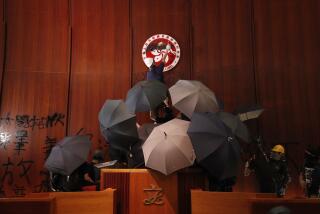Hong Kong pro-democracy activist leaves city after testifying before Congress

HONG KONG — Prominent Hong Kong democracy activist Nathan Law has left the city for an undisclosed location after testifying online in a U.S. congressional hearing about a tough new national security law imposed by mainland China on the semi-autonomous territory.
Law, who declined to disclose his whereabouts for safety, said in an interview with the Associated Press on Friday that he left because Hong Kong needs an advocate for democracy who can work internationally.
Under the new security law, activists and politicians in Hong Kong who speak to foreign media or testify in foreign hearings can be arrested for secessionism or colluding with foreign forces, Law said.
“For me leaving the place that I love, that I grew up in, that I spent most of my life in, it’s definitely a really difficult decision, but this is more than a personal choice,” he said. “I miss everything from it.”
The security law, which took effect Tuesday night, targets secessionist, subversive or terrorist acts as well as collusion with foreign forces intervening in the city’s affairs.
Law, 26, rose to prominence in Hong Kong as one of the student leaders of the pro-democracy Umbrella Revolution in 2014. In 2016, he became the youngest lawmaker elected to the city’s legislature but was later disqualified after he raised his tone while swearing allegiance to China during the oath, making it sound like a question.
A sweeping security law signals Beijing’s determination to crush pro-democracy protests at the risk of deepening its rift with the U.S. It is a bold strategy from Chinese leader Xi Jinping.
He was a leader of pro-democracy group Demosisto with fellow activists Joshua Wong and Agnes Chow. All three resigned Tuesday ahead of the security law coming into effect. With the loss of its top members, Demosisto dissolved.
The Hong Kong government announced Thursday night that the popular protest slogan “Liberate Hong Kong, Revolution of Our Time” connotes a call for Hong Kong’s independence or its separation from China, and those using it or displaying it on flags or signs could be in violation of the new law.
Police arrested about 370 people Wednesday, including 10 on suspicion of violating the security law, as thousands took to the streets to protest it.
In some cases, suspects were carrying items advocating Hong Kong’s independence, police said.
Hong Kongers are preparing for a new reality as China moves to impose new national security powers over Hong Kong that are seen by many as a “death knell” for the former British colony’s freedoms.
Critics including Law say the legislation effectively ends the “one country, two systems” framework under which the city was promised a high degree of autonomy when it reverted from British to Chinese rule in 1997.
“That is blatantly eradicating ‘one country, two systems.’ It’s blatantly putting the last nail in the coffin,” Law said.
He urged the international community to prioritize human rights over trade interests, and to present a united front to “combat or contain the authoritarian expansion of China.”
Under the security legislation, the maximum punishment for serious offenses is life imprisonment, and suspects in certain cases may be sent to the mainland for trial if Beijing deems it has jurisdiction.
News Alerts
Get breaking news, investigations, analysis and more signature journalism from the Los Angeles Times in your inbox.
You may occasionally receive promotional content from the Los Angeles Times.
A 24-year-old man who was arrested for allegedly stabbing a police officer during the protests Wednesday has been charged with wounding with intent, police said Friday. He was arrested on board a plane to London, apparently trying to flee the territory. Police wouldn’t say whether the man would face additional charges under the security law.
Separately, police charged a 23-year-old man with incitement to secession and terrorist activities on Friday, making him the first person to be prosecuted under the new law. Tong Ying-kit is accused of crashing a motorcycle into a group of police during Wednesday’s protests while possessing a flag with the newly banned slogan.
More to Read
Sign up for Essential California
The most important California stories and recommendations in your inbox every morning.
You may occasionally receive promotional content from the Los Angeles Times.












